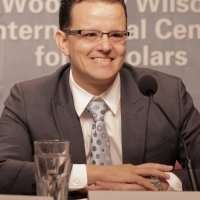The Criminal Diaspora: The Spread of Transnational Organized Crime and How to Contain its Expansion (No. 31)


Editors: Juan Carlos Garzón and Eric L. Olson
The Criminal Diaspora: The Spread of Transnational Organized Crime and How to Contain its Expansion, examines the multiple factors leading to the international expansion and diffusion of organized crime networks. Government efforts to dismantle or displace criminal groups have helped push them beyond traditional borders, while new markets and rising demand for illicit products have led criminal groups to expand their networks.
To account for this phenomenon, The Criminal Diaspora moves beyond the analysis of specific countries to examine “criminal clusters,” such as the so-called “Mexican cartels”—with international linkages between criminal groups operating in the United States, Central America, and the Andes—as well as Colombian and Brazilian clusters. Many criminal groups have now established links and operations throughout the hemisphere and beyond, including in Africa and Europe.
New and expanding illicit markets, the fragmentation of criminal organizations, and increased deportations of criminals from the United States to Latin America have contributed to what the authors call a criminal diaspora, the spread of crime and violence throughout the region and beyond.
Authors

Security and Conflict Resolution Expert; Former Consultant, United Nations Development Program and Organization of American States

Mexico Institute Global Fellow; Assistant Professor of Latin American History at George Washington University

Latin America Program
The Wilson Center’s prestigious Latin America Program provides non-partisan expertise to a broad community of decision makers in the United States and Latin America on critical policy issues facing the Hemisphere. The Program provides insightful and actionable research for policymakers, private sector leaders, journalists, and public intellectuals in the United States and Latin America. To bridge the gap between scholarship and policy action, it fosters new inquiry, sponsors high-level public and private meetings among multiple stakeholders, and explores policy options to improve outcomes for citizens throughout the Americas. Drawing on the Wilson Center’s strength as the nation’s key non-partisan policy forum, the Program serves as a trusted source of analysis and a vital point of contact between the worlds of scholarship and action. Read more




